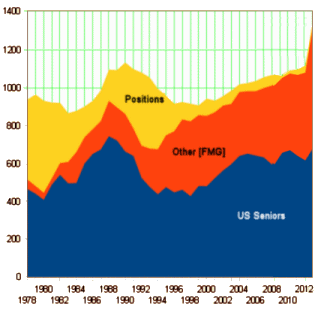This is the time of March Madness, Daylight Savings Time, and what Emily Dickinson famously called the “month of expectation.” March is also Brain Awareness Month, an annual celebration with school visits, community lectures, and lab tours to introduce the public to the mind-blowing world of neuroscience. A list of Brain Awareness events can be found at http://www.dana.org/brainweek where you will also find that March 10 -16 is the peak for related public events around the world.
Since NIMH began focusing on mental disorders as brain disorders nearly two decades ago, educating people about the brain has been a priority for us. We often say that with the powerful tools of neuroscience, we can now use the brain to understand the mind, fulfilling the original vision that Freud had for a scientific psychology. But we have to remain humble about our understanding of the brain, because even our most powerful tools remain pretty blunt instruments for decoding the brain. In fact, we still do not know how to decipher the basic language of how the brain works.Whether March for you means basketball, changing clocks, or expectations, I hope you will check out some of the Brain Awareness events. Brain science has become one of the most exciting frontiers of science. When I was a kid, the scientific frontier was “outer space.” Today it seems to be “inner space” that fascinates the boldest and brightest young minds [or should we say young brains]. We are still at the beginning of what could be an era of brain exploration, with great promise for understanding more about how each of us thinks and dreams and loves, but perhaps even greater promise for helping people with mental disorders.

So as a former training director, what are your thoughts on why psychiatry is so (relatively) unappealing to U.S. graduates?
As someone who has been through medical school in the past decade, here are my thoughts:
1. Physician compensation: There seems to be a direct correlation between the higher-salaried (i.e. more procedure-based) specialities and how competitive those specialities are to get into.
2. Exposure to academic psychiatry and medical center-based psychiatry: This is true to some extent for most specialties, but for psychiatry especially, what a med student sees during their month-long rotation is very different from how the usual outpatient psychiatry actually practices. Med students get very little exposure to private practice psychiatry and instead see a lot of chronically mentally ill and involuntary patients, so the students get a front row seat to witnessing the ineffectiveness of much of our psychopharmacological approaches.
3. Stigma: Sad to say, but it still exists. I’ve had multiple family members question my decision to become a psychiatrist rather than a “real doctor.”
4. Non-medical nature of psychiatry: Despite the best efforts of the biological psychiatrists, I think most medical students recognize that psychiatry is just very different from what they signed up for when they entered medical school. A lot of people who want to treat mental disorders end up becoming clinical psychologists or other kinds of therapists. I think this is where Danny Carlat’s thoughts on how to reform the system for training psychiatrists are interesting.
Because a baboon could throw a dart at the DSM for a diagnosis and choose one drug each from column A, B, and C. Psychiatry is a field with a future only for 1) hacks 2) cynics or 3) people who like to continually battle the system.
Not surprised at the figures. U.S. Potential Graduates tend to steer away from Psych. because of the belief that there are no jobs in the field. I’m glad to hear that more positions are coming about because of advances in technology and brain, or “inner-space” exploration.
“I’m glad to hear that more positions are coming about because of advances in technology and brain”
Not sure this is the point 1BOM was going for.